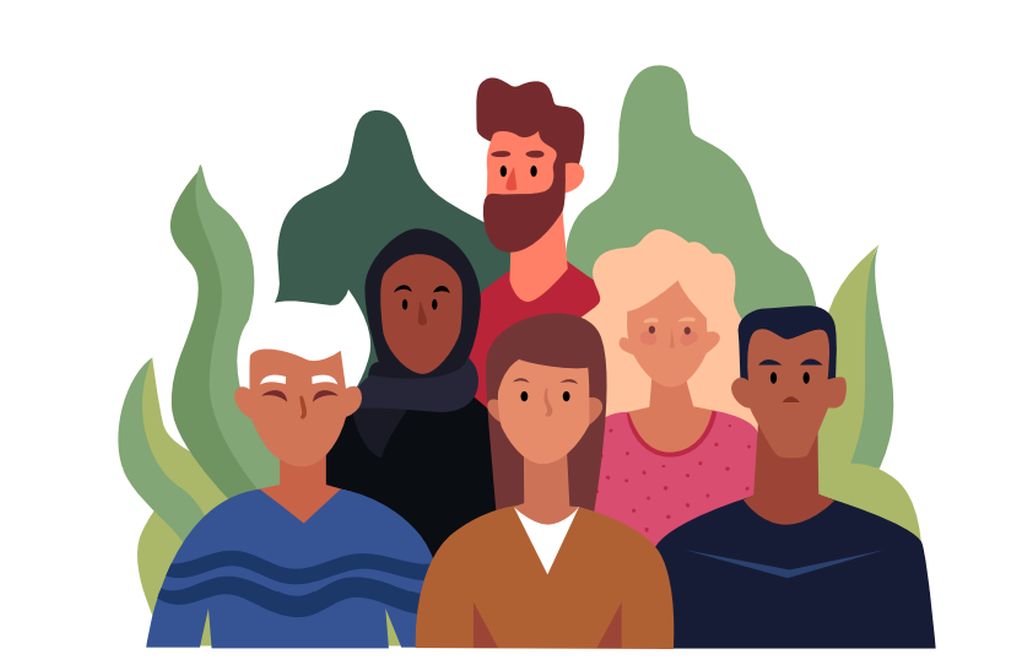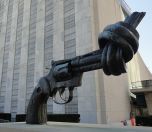* Photo: From the report
Click to read the article in Turkish / Kurdish
"Due to lack of adequate training for law enforcement officials regarding abstract concepts such as reasonable doubt, foresight and discretion, more than 400 cases that, in fact, should have been processed according to the Law of Misdemeanors have resulted in death..."
Baran Tursun Foundation has released its "Report of Violations of Right to Life as a Result of Disproportionate Use of Force by Law Enforcement Officials - They Didn't Have to Die."
Prepared by Dr. Günal Kurşun and Mehmet Tursun, the report has noted, "Instead of including most suspects who opposed the law of misdemeanors into the trial process; interpreting abstract concepts such as 'Foresight, Reasonable Suspicion and Appreciation' according to their own logic, the suspect police punished more than 400 civilians with death at the scene."
The report on violations of right to life as a result of disproportionate use of force by law enforcement officials covers the 14-year period starting from 2007. The reason behind the documentation since 2007 is that with the Law No. 5681 dated 02.06.2007, some amendments were made in the Article 16 of the Law of Police Powers (LPP) No. 2559 and the authority of the law enforcement to use weapons has been extended by this amendment.
'Serious perceptions in society'
In its summary, the report has shared the following commentary:
"In cases that resulted in the deaths of civilians, including children and women, the right to life of the suspects was abolished although there was no attack and violence against the police, no armed conflict with the police, no response to the government's influence and actions with weapons, and no violence and rape that endanger the life and property of others.
"As a result of these severe violations of rights, serious perceptions have emerged in the society that law Enforcement Officials can at any time use violence, shoot with a gun, and kill anyone who continues his daily life or opposes the Law of Misdemeanors.
"The society has a strong perception both about the violations of the right to life and that the disproportionate force exerted by the police against the awareness of claiming rights and social reflexes in the society goes unpunished. The fact that administrative mechanisms ignore the obligation of law Enforcement Officials to comply with the 'proportionality and necessity' criteria of international human rights law, and the perception of protecting and guarding the criminal created by the statements of bureaucrats in executive positions play an important role in the formation of these perceptions."
'Guns used as the first resort'
The report has also noted:
"With the amendments made in the Law of Police Powers in 2007 and 2015, it is observed that violations of the right to life have increased significantly as a result of the police officers resorting to their increased powers in using firearms without hesitation.
"As the law stipulates, the police officers, who should use their gun as 'the last resort', attribute some meaning to abstract concepts that they are not trained enough such as reasonable doubt, foresight, and discretion, and they use their gun in a fatal way almost as 'the first resort'.
"Instead of including those who opposed the Law of Misdemeanors to the judicial process, they punished hundreds of suspects with death without trial, with abstract concepts such as reasonable doubt, foresight and discretion, to which each police officer attributes the meaning in his mind."
404 deaths, 93 children
According to the report, the right to life of 404 people were violated in the period of 2007-2020. 93 of them were children:
Recommendations
Against this backdrop, the Foundation has listed the following recommendations at the end of its report:
- In cases where there is an investigation against a police officer in charge of a violation of the right to life, the officer concerned should not be allowed to remain on active duty and the officer should not be promoted.
- In cases of unlawful killing, prosecutors should always sue for killing rather than lesser crimes. Cases should be heard by independent, impartial and effective judicial bodies, and the perception of possible impunity should be prevented.
- In cases where the police are a party and the right to life is violated, in addition to the duty of collecting and preserving evidence, the task of investigating the crime scene should be taken from the police force and given to the Gendarmerie, thus allegations of creating evidence and obscuring evidence should be prevented.
- Steps should be taken not to retaliate against those who lost their relatives and made a complaint. Investigations should be opened for individuals who are subjected to serious human rights violations and those who make all kinds of threats and pressure against their families, witnesses, lawyers and non-governmental organizations, and their accountability should be ensured. The counter-accusation practices against the persons making the complaint should be ended.
- Priority should be given to implementing stronger and more effective protection programs that will ensure that witnesses, victims, families of victims and third parties who are under threat feel safe.
- The subject of concepts such as "Reasonable doubt, foresight and discretion" added to Article 4 of Law of Police Powers (Article 16 of Law No. 2559) should be discussed in detail in the trainings given to the police. Every police officer should be prevented from attributing a meaning to these concepts and using weapons according to this attribution. It should be ensured that the use of lethal force can be used as a last resort and only to save lives when necessary, with concrete concepts and clearly stated in the laws, not in abstract terms, and bring the legislation in line with international standards. Instead of the abstract and extremely broadly interpreted powers in the legislation, the power of the police to use weapons should be narrowed and linked to certain criteria.
- Independent and reliable mechanisms should be established, including NGOs, to monitor and evaluate how the Law of Police Powers is implemented, in particular the power to stop, search and use force.
- Facilities should be developed to enable alternative public institutions to courageously address the incident in the investigation and monitoring of the events, notably the Ombudsman Institution, the Turkish Human Rights and Equality Institution (TIHEK) and the TGNA Human Rights Commission.
- The proportional or gradual stages of using force, often pronounced in the use of force, carry boundaries and uncertainties. There is confusion about in which situations this method can be used, especially with regard to the use of weapons. While some law enforcement personnel hesitate to use their guns even in a hot gunfight, some police officers can shoot by acting with their gun after someone who did not obey the warning to stop and fled and who could possibly have other reasons - such as driving without license. Fatal and vital lines should be redefined in a way that does not cause confusion.
- Continuous functioning of video and audio recording systems should be guaranteed when interrogating suspects in detention and throughout police stations. These records should not be altered, deleted, and should be promptly and regularly submitted to the prosecution so that they can be used in the investigation of alleged human rights violations in detention.
- Methods of using "mobile weapons" and their limits of authority should be explained in detail in police schools and in-service training and in trainings for using weapons with deadly consequences, and the lack of knowledge of police officers about using mobile weapons should be eliminated through training.
- The perception of impunity should be prevented by effectively implementing the recourse mechanism for the police, whose fault has been proved by a judicial decision, and the practice of compensating illegal violations from the taxpayers should be terminated.
Click to read the report in Turkish / English
(AS/SD)










132.jpg)